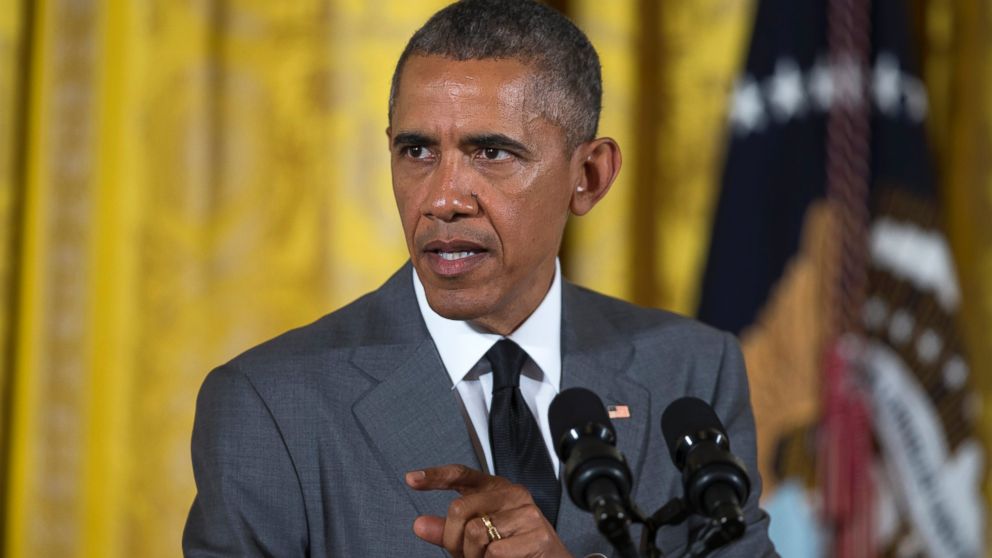President Obama Travels to Germany for G-7 Summit: 5 Things to Watch
ISIS, Ukraine, Russia, and Iran are on the agenda

— -- President Obama travels to Krün, Germany this weekend for a quick, two-day trip to the G-7 summit, where the topics of ISIS, Ukraine, Russia and Iran will be high on the agenda.
This year’s summit takes place at Schloss Elmau, a 100-year-old castle-turned-resort nestled in a national forest in the Bavarian Alps. The president will spend Sunday and Monday with the leaders of Canada, Germany, Italy, Japan and the United Kingdom as well as leaders from Iraq, Nigeria and Tunisia.
Here are five things to watch over the course of President Obama’s time at the G-7 Summit.
The ISIS Strategy
President Obama and Iraqi Prime Minister Haider al-Abadi will speak face-to-face Monday at a time when the administration is under fire for its strategy to combat ISIS.
The White House said the meeting would not result in any announcement about new initiatives to combat ISIS, but instead will be an opportunity for the two leaders to discuss “the situation on the ground and our efforts to support the Iraqi security forces,” Deputy National Security Advisor Ben Rhodes said.
The meeting comes just a few weeks after ISIS captured Ramadi, a significant blow to the U.S. and Iraqi strategy to defeat the group. At the time, Defense Secretary Ash Carter made a controversial comment suggesting the Iraqi security forces lacked the will to fight. At the time, the prime minister said he was surprised by the statement, and Vice President Joe Biden eventually reached out to smooth things over.
While Iraq is not a member of the G-7, Abadi, along with the presidents of Nigeria and Tunisia, are attending a portion of the meetings dedicated to outreach partners. That meeting will include a discussion about terrorism.
Russia's Involvement in Ukraine
This is the second year in a row that Russian aggression in Ukraine will dominate much of the agenda of the G-7 summit. Last year, the G-8 became the G-7 after leaders decided to exclude Russian President Vladimir Putin from the meetings following his country’s military escalation in Ukraine.
Over the weekend, President Obama will urge his G-7 partners to extend economic sanctions against Russia, an issue the European Union will consider later this summer. Rhodes said the extension of sanctions would send a “signal to Russia that it will continue to face severe costs to its economy” if it continues its aggression.
The White House is also concerned about the recent increase in fighting in Ukraine. The summit is not expected to produce any new direct punishments for Russia, but leaders could reach a consensus about what next steps could entail.
Iran Nuclear Negotiations
Less than one month remains for the negotiators from the P5+1 -- made up of the five permanent members of the United Nations Security Council, plus Germany -- to reach a deal in the Iran nuclear negotiations. President Obama will have the opportunity to speak in person with leaders, including British Prime Minister David Cameron and German Chancellor Angela Merkel, for the last time before any deal is struck. The president will meet privately with both of those leaders in addition to participation in the broader summit.
The White House said the president plans to use his conversations to ensure the U.S. is “in lockstep with our key allies at the negotiating table.”
Negotiators are expected to reach a deal by the end of the month. Last week, Secretary of State John Kerry broke his leg, raising questions about the extent of his participation in the final weeks of negotiations.




